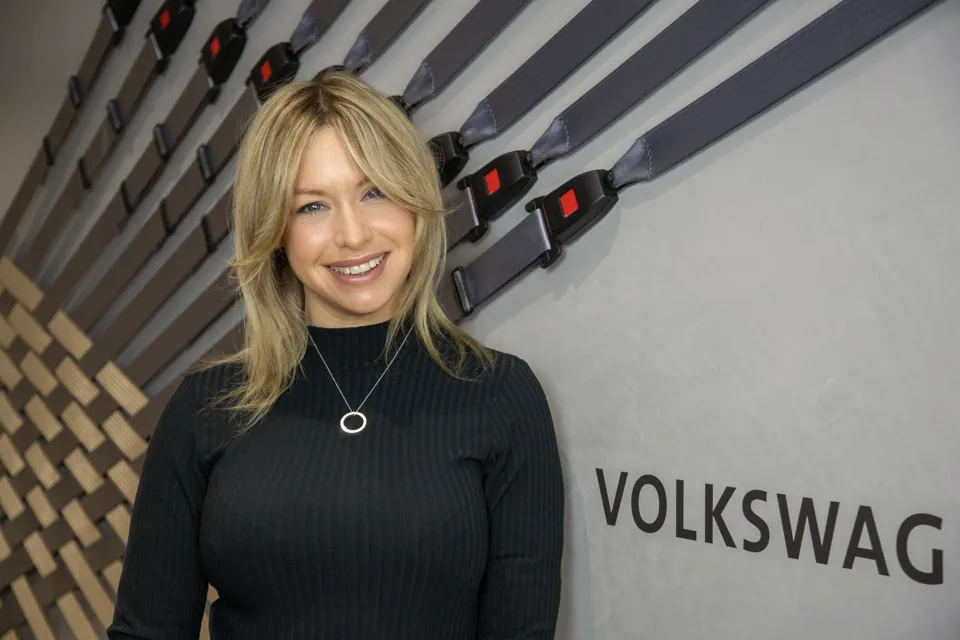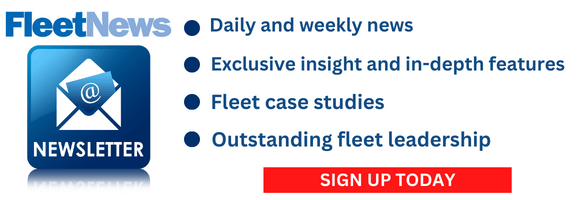To mark International Women’s Day (IWD) and this year’s theme of inclusivity, Emma Loveday, senior fleet consultant at Volkswagen Financial Services (VWFS) talks about her experiences of working in the fleet sector.
Can you tell us about your career to date?
If I’m honest, I sort of fell into fleet. Following my A-Levels, I found an opportunity with facilities management group, Mitie.
I learnt on the job, focusing on fleet operations and road risk. It was an invaluable experience, where I discovered many fundamental aspects of how to effectively run a large and diverse fleet operation.
I then moved to Thames Water, again looking at occupational road risk and driver safety, which quickly became an area of interest for me.
At Thames, I worked as part of a small team supporting not only a significant LCV and company car fleet, but also a HGV fleet, which added a fresh perspective to my understanding of fleet-related challenges.
I then moved to DriveTech, a subsidiary of the AA, which offers risk management services. This was a supplier role, so it perfectly complemented the operational experience I’d built.
All this experience paved the way to my current role as Senior Fleet Consultant at VWFS.
What were your initial impressions of the fleet sector?
Like many people, I found the sector heavily male dominated at first. I’d often attend events and forums and would be one of a small number of females in the room – and, at 21-years-old when I started out, almost always the youngest. It was a little intimidating at first, as you realise the low level of female representation around you.
This was something I felt was particularly noticeable in the HGV fleet space.
As a female working in the fleet sector, are there specific challenges you have faced or overcome?
I’ve had lots of support throughout my career. One thing that has really helped me progress and given me confidence is having advocates, or more formally, sponsors, that have actively championed my interests and successes and have aided my career development and advancement. But it’s also important to recognise some of the challenges women often face in the industry.
In the past, I’ve experienced incidents of microaggression and stereotyping, which was unnerving. For instance, walking into a room with male colleagues and not being addressed, when I’m the person leading the meeting, and being given the coffee order was certainly one that sticks in my mind.
I did feel, and at times still do, that as a woman, I had to continually prove my worth and clearly articulate that I knew what I was talking about. While things have improved in recent times, this was certainly the case in the past.
The positive thing for the sector is that things have gotten a lot better. Everyone’s more aware of the need to promote inclusivity and diversity as a reflection of wider society.
Important membership groups, such as Deloitte’s Women at the Wheel, have been vital for me personally, helping to promoting female voices in the workplace and making sure they’re heard across the industry.
The theme for this year’s IWD is Inspire Inclusion, how are you championing inclusivity at VWFS?
Knowing how daunting it can be starting out in your career, I ensure all colleagues within a group setting can share their thoughts and views.
I proactively advocate, champion and celebrate female colleagues’ achievements, successes and hard work.
I also make it my mission to call out any bias-based behaviours, comments or language that I see in meetings and the wider work environment.
Finally, I offer myself as an informal mentor for female colleagues at VWFS and try to be an experienced source of advice to help them progress at work and in their role.
As a business, we are championing diversity and inclusivity in a number of ways, and we have a clear action plan to support this.
Recent activity includes regular podcasts dedicated to DEI topics to educate and support our colleagues (one recent episode focused on working parents), and we are also hosting a dedicated Inclusion Live event in support of International Women’s Day, where guest speakers will be talking to colleagues on important topics surrounding inclusivity.
What advice would you give to females looking to enter the fleet sector?
Firstly, it’s a brilliant industry that offers a range of career opportunities. And with the industry’s rapidly changing landscape, there’s never been a more exiting time to join.
However, fleet careers aren’t really spoken about in schools and further education, meaning it’s the responsibility of everyone in the industry to promote them.
The sector’s at the forefront of finding answers to big issues. The transition to low carbon transport solutions and the journey to net zero make up an exciting backdrop to the work we do.
Finding fleet solutions during a period of real change, and under an intense spotlight, is exciting for the younger generation, and they should be proactively encouraged to consider careers in the sector.
For those who join the industry, I’d urge them to find their voice, have confidence in their abilities and skills and realise the valuable contribution they can make. Also, you don’t have to know everything! Believe me, no one does, and that’s ok.
Don’t be afraid to ask questions and ask for help. We don’t need to be perfect in order to be good at our jobs. Seek out experienced mentors – both male and female. Learn from female role models in the sector and use them as inspiration to make the most of your potential.
The change of attitude and behaviours witnessed in recent years means there’s never been a more inclusive time for women to embark on a career in fleet.
Finally, can you share your top three key career achievements to date?
In my first job, I was delighted to win a road safety and eco award around low carbon fleet and fuel-efficient driver training within the first 12 months of starting my career in the fleet industry.
I was also shortlisted for the Barbara Cox Woman of the Year award in 2021, which recognised my community work alongside my industry achievements. The third achievement that resonates was becoming a Green Fleet EV Champion in 2021, which also saw me placed alongside the 100 most influential people working in the electric vehicle (EV) space.
I’m incredibly proud of everything I’ve achieved so far, especially when I think back to my early days of my career and starting out on what has turned out to be such a stimulating and fulfilling fleet career.
It’s clear inclusivity in the workplace has evolved, even over my relatively short time in the industry. However, it’s now really important that everyone, including men, comes together to promote our sector and the rewarding careers it offers to future talent.
By ensuring we’re as inclusive as possible, not just to women, but other demographics too, we can ensure the fleet and wider automotive industry is at the very forefront of growth.

















Login to comment
Comments
No comments have been made yet.